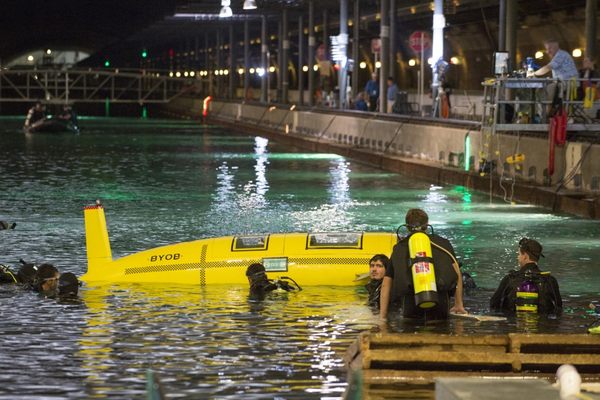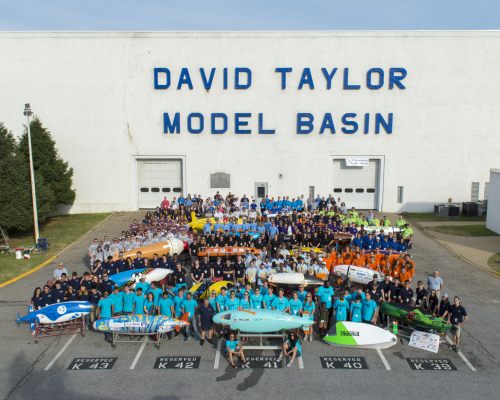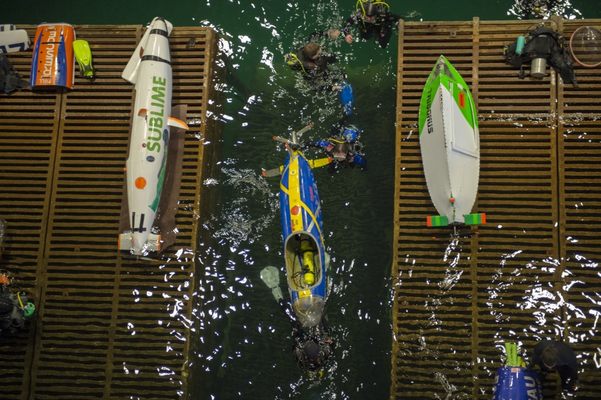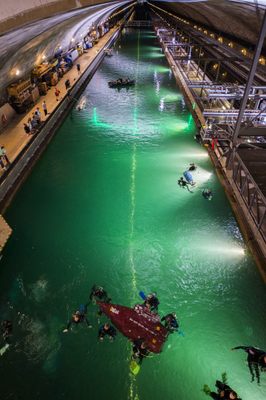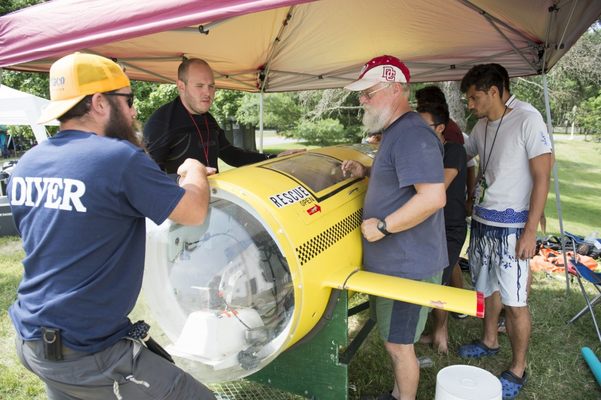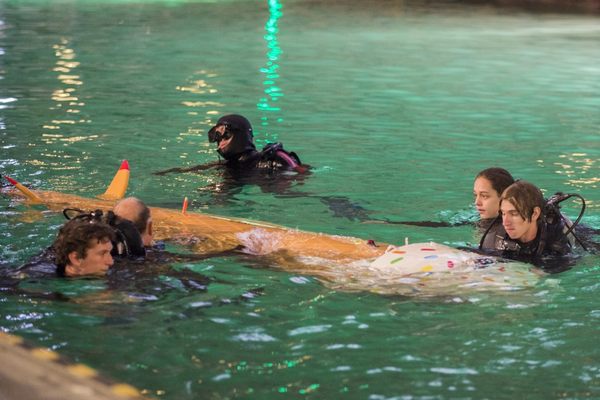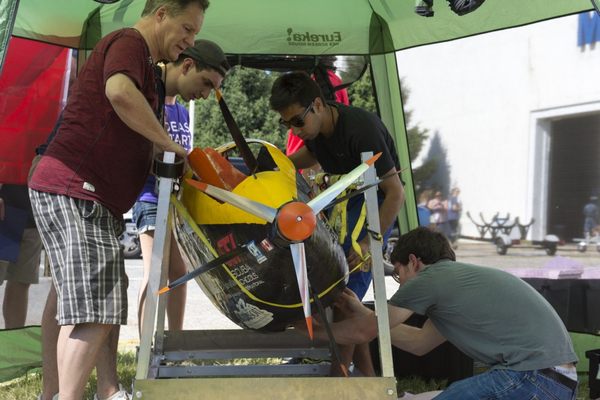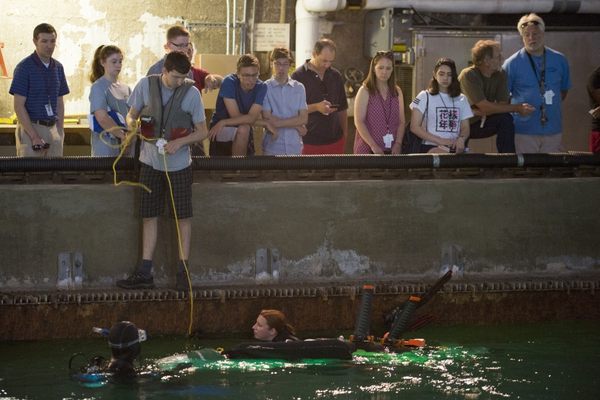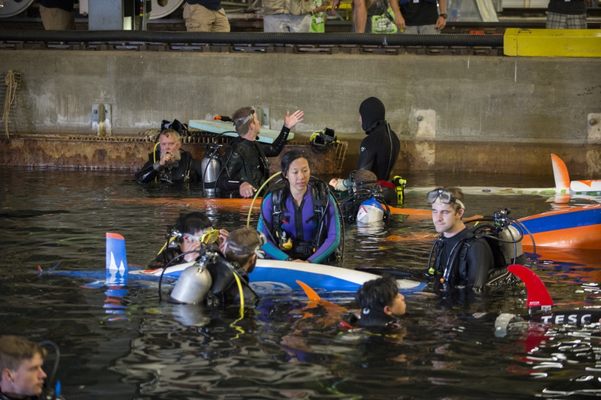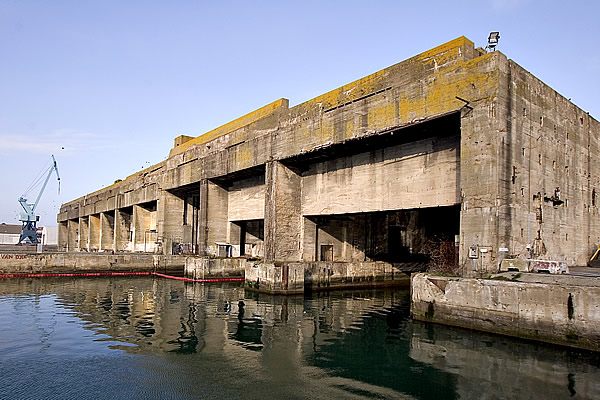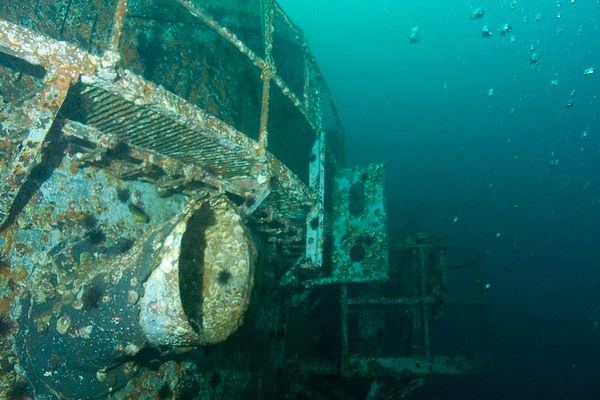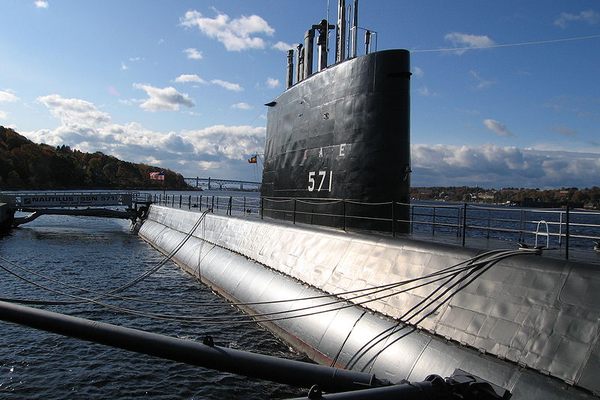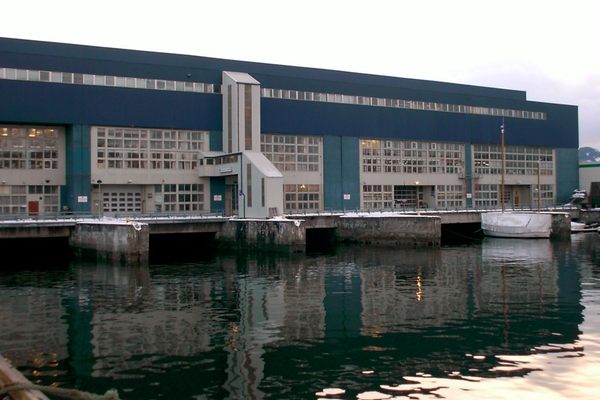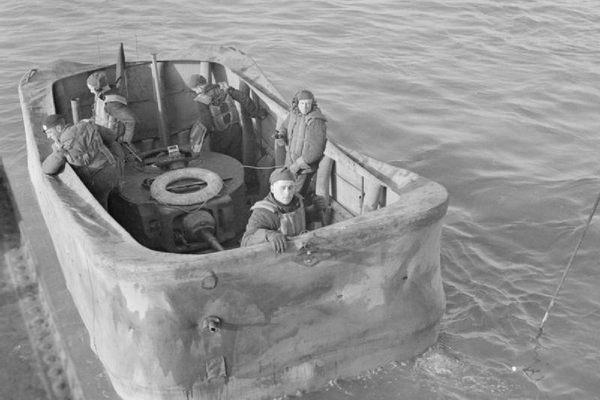About
On most counts the U.S. Navy is a deadly serious business with its nuclear submarines, supercarriers, and destroyer mounted railguns. But one of its more whimsical facilities is landlocked in suburban Maryland: a half-mile long indoor swimming pool run by the Naval Surface Warfare Center.
The so-called David Taylor Model Basin is normally used to conduct naval architecture tests (like a watery wind tunnel), but once every other year since 1989 it has also hosted the International Submarine Races, an educational spectacle aimed at drawing more students into STEM specializations.
Facility commander Heidemarie Stefanyshyn-Piper explained to Undersea Warfare Magazine in 2011 that participating collegiate and High School teams have an opportunity to see “a real practical application to what they’re learning in the classroom and putting it to actual use building a piece of hardware—and not just building it, but getting it to compete a goal.”
Two dozen teams typically compete with a diverse mix of one seat, two seat, propeller, and non propeller designs. Rules allow for a wide degree of creativity, but all the submersibles are required to have propulsion systems “directly coupled to a human being and shall not employ any energy devices.” The most common human powered propulsion rigs work like underwater bicycles, with leg power producing torque on a propeller shaft.
A Popular Mechanics reporter attended the 2017 races and came away convinced that this style of human powered sub “is so ridiculous and impractical that outside of this competition, they are virtually nonexistent.” And while the idea of frantically pedaling away while submerged and pulling air through a SCUBA respirator does sound physically strenuous, and that's what makes the ISR such a fun engineering challenge for students.
Related Tags
Community Contributors
Added By
Published
October 9, 2017
